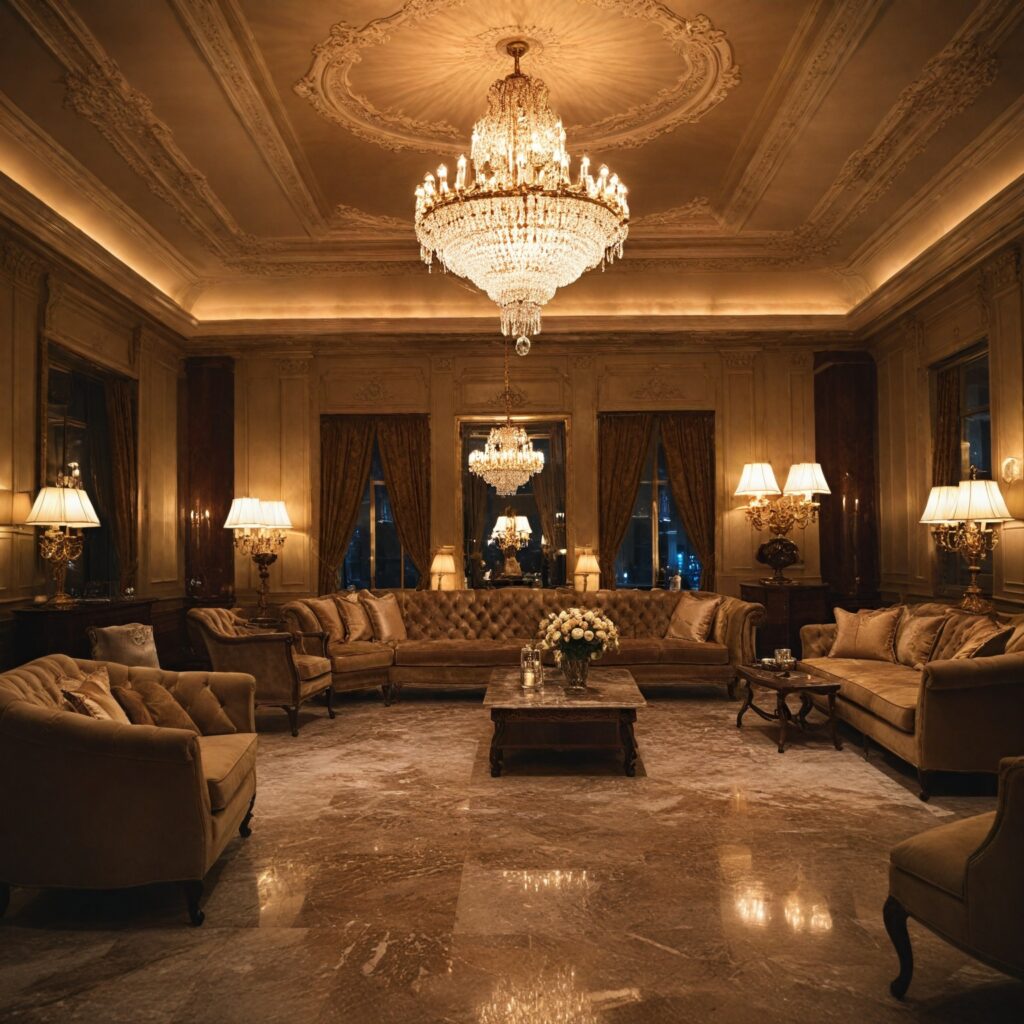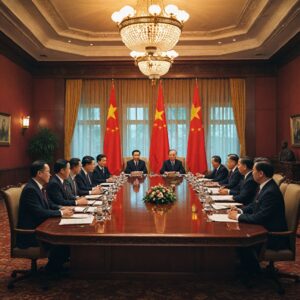
Highlights:
– A new private membership club in Washington, D.C., founded by Donald Trump Jr., charges a $500,000 membership fee.
– Founding members include prominent figures like White House crypto czar David Sacks and crypto investors Tyler and Cameron Winklevoss.
– The club promises exclusivity and privacy, with heavy vetting processes for prospective members.
Exploring the Rise of Exclusive Membership Clubs
Exclusive membership clubs have long been symbols of prestige and exclusivity, offering a sanctuary for the affluent and influential. The recent launch of Executive Branch in Washington, D.C., with a staggering $500,000 membership fee, has stirred curiosity and raised eyebrows. Founded by Donald Trump Jr. and other prominent figures, this club is set to redefine luxury membership experiences in the capital.
In the era of social media and constant connectivity, there is a growing appeal for spaces that prioritize discretion and privacy. Exclusive clubs like Executive Branch cater to this need by curating a selective environment where high-profile individuals can network, collaborate, and socialize away from the public eye. The allure of being part of an elite community with shared interests and connections is a driving force behind the success of such establishments.
The Allure of Exclusivity and Privacy
The establishment of Executive Branch underscores the evolving landscape of private membership clubs, which have seen a surge in popularity post-pandemic. With a lineup of distinguished founders and founding members, including key players in technology and finance, the club aims to create a hub for intellectual exchange and social engagement among the elite. The stringent vetting process and high membership fee ensure a level of exclusivity that appeals to those seeking a refined social circle.
In a city like Washington, where networks and connections hold immense value, Executive Branch is poised to become a pivotal player in shaping conversations and collaborations within political and business spheres. By bringing together influential figures from diverse backgrounds, the club sets the stage for meaningful interactions that could potentially impact decision-making processes and influence public discourse.
Implications of Exclusive Membership Clubs
As private clubs like Executive Branch gain traction, questions arise regarding access, transparency, and representation within elite circles. While these spaces offer a sense of privilege and camaraderie to their members, they also risk perpetuating exclusivity and elitism. The need for diversity and inclusion within these exclusive environments becomes crucial to ensure a balanced representation of voices and perspectives.
Moreover, the emergence of high-priced membership clubs raises broader societal discussions about wealth disparity and access to resources. The exorbitant fees associated with such clubs highlight the disparity in wealth distribution and underscore the divide between the affluent and the rest of society. Balancing the allure of exclusivity with the values of inclusivity and social responsibility poses a challenge for these exclusive establishments.
In conclusion, the rise of exclusive membership clubs like Executive Branch reflects a broader trend towards curated experiences and privileged networking opportunities. While these clubs offer a sense of community and exclusivity to their members, they also prompt reflections on social equity, diversity, and the impact of elite networks on societal dynamics. As we navigate the evolving landscape of exclusive memberships, it is essential to consider the implications of such spaces on inclusivity and societal cohesion.
What role do exclusive membership clubs play in shaping social dynamics and networks of influence?
How can exclusive clubs like Executive Branch balance exclusivity with inclusivity and social responsibility?
What impact do high-priced membership fees of elite clubs have on wealth disparity and societal perceptions of privilege?
Editorial content by Blake Sterling















